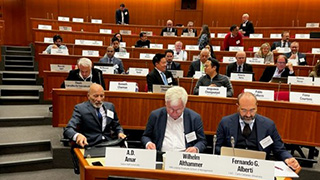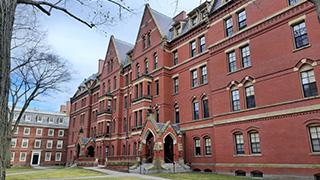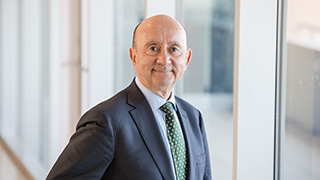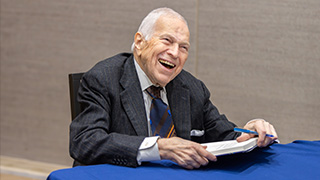Seton Hall Faculty Participate in Harvard Workshop
Monday, January 30, 2023

Participants of the 2022 Microeconomics of Competitiveness (MOC) workshop at Harvard University.
Seton Hall University faculty, Professor of Management A. D. Amar, Ph.D., Professor of Religion and Director of Catholic Studies Ines Murzaku, Ph.D., and Associate Professor of Marketing Hector Lozada-Vega, Ph.D., were invited by Harvard Business School Institute for Strategy and Competitiveness to participate in the Microeconomics of Competitiveness (MOC) workshop at Harvard University, held December 12-14, 2022. The information on global best practices in strategy and competitiveness in the fields of management, administration, public policy, and diplomacy learned at the workshop have been brought to the campus. They also propose a plan to Provost Katia Passerini, Ph.D. for expanding Seton Hall’s participation in this Harvard University initiative.
In 2021, on the approval by Harvard Business School of the Seton Hall University’s proposal for joining the MOC Affiliate Network, housed in the Institute for Strategy and Competitiveness, Seton Hall became a member of this distinguished group of now 150 educational institutions in 66 countries that educates, consults, and trains leaders in the public, private, and governmental sectors for bringing prosperity to all people through strategy and competitiveness. The MOC workshop of 2022 was Seton Hall’s second; however, this year, it returned to the Harvard University campus.
Founded by the world-famous strategy guru, Professor Michael Porter, MOC Affiliate Network explores factors that bring success to organizations and countries and their clusters through microeconomics—demand, supply, and price—generated competitiveness. MOC affiliates follow Porter’s MOC curriculum.
At the MOC workshops, over these two years, A. D. Amar, Ines Murzaku, and Hector Lozada-Vega attended several sessions from the scholars and practitioners who have applied MOC internationally, both in higher education settings and in the formation of national policies. They participated in discussions about the history and ongoing relevance of MOC, especially as it can promote human development for an equitable society.

"MOC is involved in many areas outside business, extending its reach to diplomacy,
political science, public administration, and beyond," Amar explained and continued,
"We are enthusiastic about further collaboration among disciplines at Seton Hall to
develop innovation in teaching and practice."
As part of this affiliation, faculties from the Stillman School of Business and the College of Arts and Sciences will plan to develop a graduate level course that combines business and humanities methodologies and perspectives for interdisciplinary integration led by Professor Amar, Professor Murzaku, and Associate Professor Lozada-Vega. They said that this would be Seton Hall’s MOC effort to assessing and improving the competitiveness of an organization, a community, or a country, and the different clusters within the country. It will take place with the support of Harvard Business School. Following this, the next goal would be to bring MOC beyond Seton Hall by providing industry, social, and political leaders the training in competitiveness through microeconomics turned into tools and techniques.
Professor Murzaku said, "The stated goal of MOC is to create prosperity for all people by building competitiveness of nations which falls in line with the Seton Hall’s strategic plan, as it relies on promoting the common good and serving local, national, and global communities."





